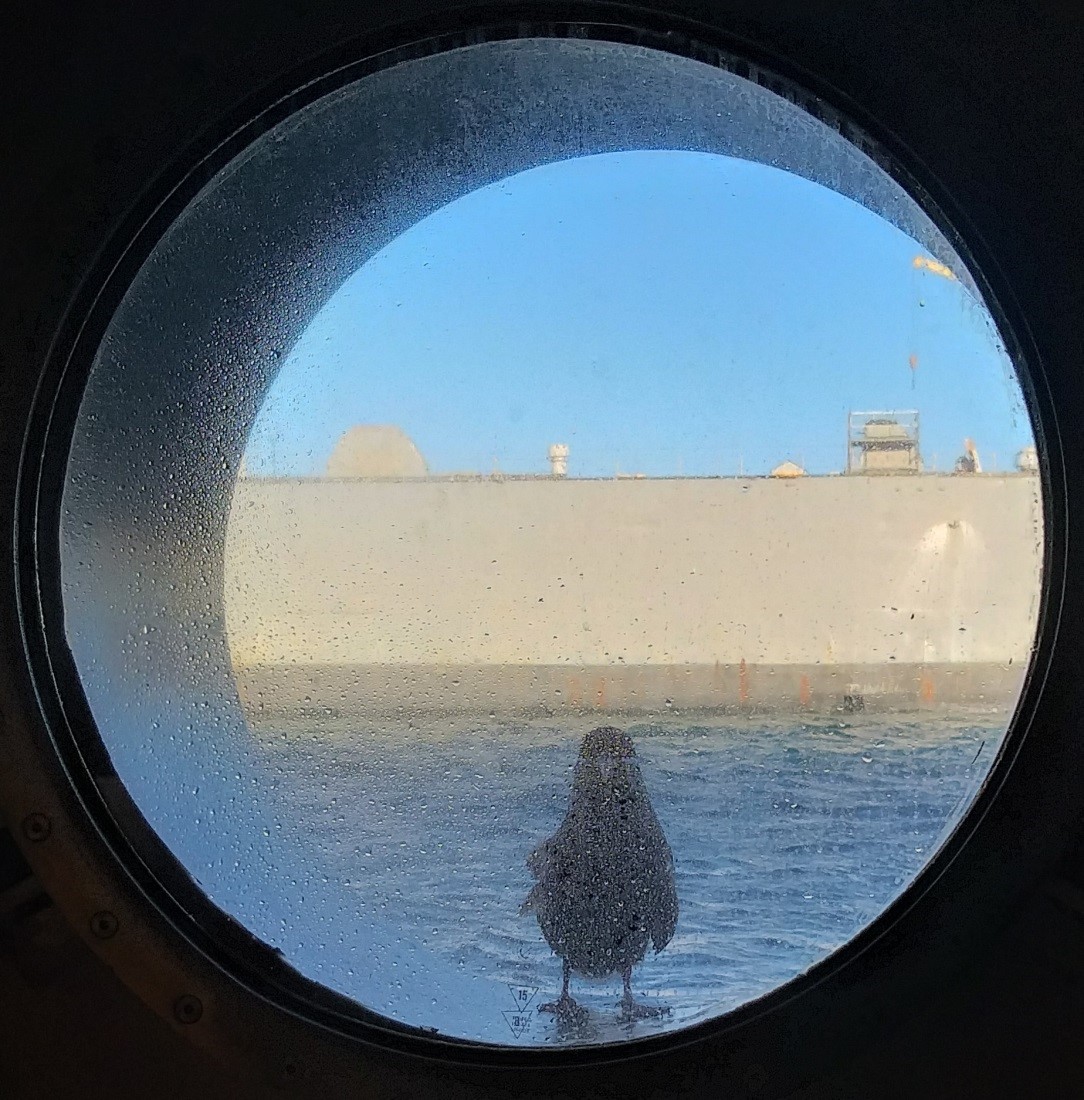(deutsche Version unten)
With 33 scientists and 32 crew members on board, on the 22nd of February 2022 the Sonne expedition SO289 left Talcahuano, Chile, to conduct a South Pacific section as a part of the International GEOTRACES Program for assessing sources, sinks, distributions and internal cycling of trace elements and their isotopes in the oceans. Our destination: Noumea, in the French territory of New Caledonia.
During this 45 day adventure across the Pacific, we will be collecting samples along the 32.5° S parallel with the goal of understanding how trace metals behave in this part of the ocean. “What do you mean by trace metals?” I hear you ask. They are chemical elements, for example iron, molybdenum, manganese, cobalt or zinc, that are present in seawater at very low concentrations, say in the order of 0.005 mg per liter seawater (or maybe even less!). However, despite their low concentrations, they are important for maintaining the ecosystem, since they are key constituents of certain enzymes (proteins that accelerate biochemical reactions) essential to life. Not in vain, these elements are called “essential micronutrients”.
So, what we do is determine the concentrations of these metals in the samples along the transect and at different depths. To understand if the metals are dissolved in the water or associated to suspended material contained in the sample, we filter a portion of the samples prior to measuring the metal concentrations. Since the concentrations of these elements are so low, extreme precautions are required in order not to contaminate the samples. That is why all the material used to process or store the samples has to undergo a strict cleaning procedure and the air of the working area has to be filtered to avoid any contamination by dust.
With the collected information, we expect to gain a better understanding of the ecosystems in the South Pacific Ocean, which will help humanity face major modern environmental challenges such as climate change.
Safety on board
Due to the ongoing COVID pandemic, it is of the highest importance to keep ourselves healthy. Therefore, strict measures are being taken to avoid an infection in the ship.
Apart from the fact that all members of the scientific team and crew are vaccinated, we all had to undergo a PCR test prior to coming into the vessel.
Furthermore, during the first ten days after our departure from Chile, maintaining social distance, wearing face masks and making a daily self-test will be mandatory. We will also have our meals in turns and not share the tables. And when in the lab, we are supposed to work in fixed teams of two people. Of course, this makes our work more difficult. However, everyone on the ship is well aware of the importance of following these rules to avoid a possible outbreak on board. Therefore, everyone is being extra cautious until the day we are allowed to relax and take our masks off.
Ignacio Pedre
University of Oldenburg
Alles an Bord für SO289!
Mit 33 Wissenschaftlern und 32 Besatzungsmitgliedern an Bord verließ die Sonne-Expedition SO289 am 22. Februar 2022 Talcahuano, Chile, um im Rahmen des internationalen GEOTRACES-Programms einen Abschnitt im Südpazifik zu absolvieren, um Quellen, Senken, Verteilungen und interne Kreisläufe von Spurenelementen und ihren Isotopen in den Ozeanen zu untersuchen. Unser Ziel: Noumea, im französischen Territorium Neukaledonien.
Während dieses 45-tägigen Abenteuers im Pazifik werden wir entlang des 32,5° südlichen Breitengrades Proben sammeln, um zu verstehen, wie sich Spurenmetalle in diesem Teil des Ozeans verhalten. “Was meinen Sie mit Spurenmetallen”, höre ich Sie fragen. Es handelt sich dabei um chemische Elemente, zum Beispiel Eisen, Molybdän, Mangan, Kobalt oder Zink, die im Meerwasser in sehr geringen Konzentrationen vorhanden sind, etwa in der Größenordnung von 0,005 Milligram pro Liter Meerwasser (oder vielleicht sogar weniger!). Trotz ihrer geringen Konzentrationen sind sie jedoch wichtig für die Aufrechterhaltung des Ökosystems, da sie wichtige Bestandteile bestimmter Enzyme (Proteine, die biochemische Reaktionen beschleunigen) sind, die für das Leben unerlässlich sind. Nicht umsonst werden diese Elemente als “essentielle Mikronährstoffe” bezeichnet.
Wir bestimmen also die Konzentrationen dieser Metalle in den Proben entlang des Transekts und in verschiedenen Tiefen. Um herauszufinden, ob die Metalle im Wasser gelöst sind oder mit dem in der Probe enthaltenen Schwebstoff in Verbindung stehen, filtern wir einen Teil der Proben, bevor wir die Metallkonzentrationen messen. Da die Konzentrationen dieser Elemente so gering sind, sind extreme Vorsichtsmaßnahmen erforderlich, um die Proben nicht zu verunreinigen. Deshalb muss das gesamte Material, das zur Verarbeitung oder Lagerung der Proben verwendet wird, einem strengen Reinigungsverfahren unterzogen werden, und die Luft im Arbeitsbereich muss gefiltert werden, um eine Verunreinigung durch Staub zu vermeiden.
Mit den gesammelten Informationen erhoffen wir uns ein besseres Verständnis der Ökosysteme im Südpazifik, was der Menschheit helfen wird, den großen modernen Umweltherausforderungen wie dem Klimawandel zu begegnen.
Angesichts der anhaltenden COVID-Pandemie ist es von größter Bedeutung, dass wir gesund bleiben. Daher werden strenge Maßnahmen ergriffen, um eine Ansteckung auf dem Schiff zu vermeiden. Abgesehen davon, dass alle Mitglieder des wissenschaftlichen Teams und der Besatzung geimpft sind, mussten wir uns alle einem PCR-Test unterziehen, bevor wir auf das Schiff kamen.
Außerdem müssen wir in den ersten zehn Tagen nach unserer Abreise aus Chile sozialen Abstand halten, Gesichtsmasken tragen und uns täglich einem Selbsttest unterziehen. Außerdem werden wir unsere Mahlzeiten abwechselnd einnehmen und die Tische nicht teilen. Und im Labor sollen wir in festen Zweierteams arbeiten. Das macht unsere Arbeit natürlich schwieriger. Aber jeder auf dem Schiff ist sich bewusst, wie wichtig es ist, diese Regeln einzuhalten, um einen möglichen Ausbruch an Bord zu vermeiden. Deshalb sind alle besonders vorsichtig, bis wir uns entspannen und unsere Masken abnehmen dürfen.
Ignacio Pedre
Universität Oldenburg
